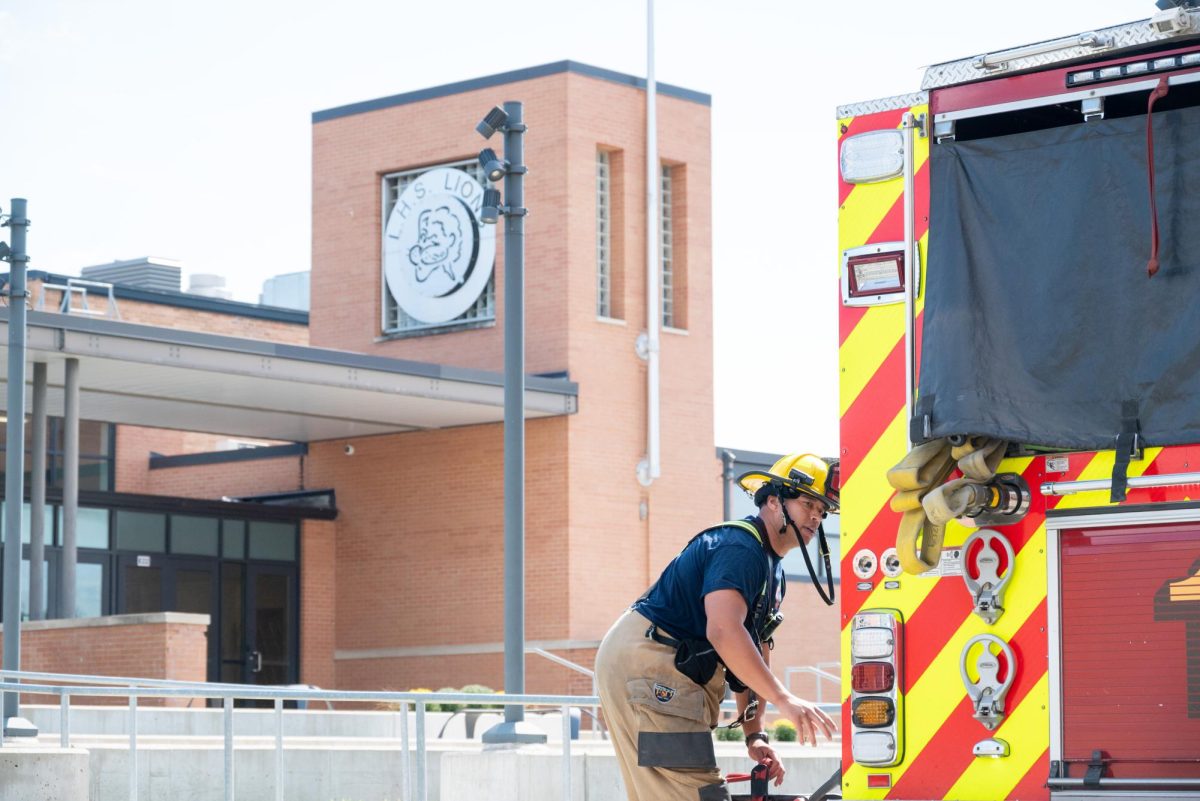On Oct. 1, the Douglas County Sheriff’s Department announced that area law enforcement radios will no longer alert emergency radios, including the popular Lawrence Police Scanner.
The police scanner, which has 12.7k followers on X and a large following on Facebook, regularly alerts community members of law enforcement calls. The scanner has been up since 2019 and will face its end on Oct. 15.
The change will be implemented due to a 2022 FBI policy update that honors criminal justice information to be protected by encryption when it is transmitted outside of the secured location of the crime. The specific policy that pertains to this change in Douglas County and for other agencies in Kansas and across the country is version 5.9.2 effective Dec. 7, 2022.
According to a news release from the sheriff’s office about the change, they state that the policy aims to protect “the privacy of victims, witnesses and suspects when their personal information is transmitted over a law enforcement radio.”
Furthermore, Lawrence Kansas Police Department communications manager Laura McCabe said that the encryption will eliminate uninvolved people sharing sensitive information about, or attempting to attend active incidents overhead on the radio system.
“It improves overall public safety by facilitating coordinated emergency response efforts between police, fire and medical teams who can more openly share critical information,” McCabe said.
However, the federal “policy change” the sheriff’s office is pointing to as the reason for encryption was not actually a change—similar language has been in place for years. A 2014 version of the policy states that “… data shall be immediately protected via cryptographic mechanisms (encryption)”. This rhetoric is not identical, but extremely similar.
To explain the delay, Sheriff Jay Armbrister said in an email that under his understanding, the auditors have used the past two years to educate agencies on the policy and how to comply as a part of their next audit.
“This unfunded mandate from the feds was not our choice. Everything we have done is based on the information we received to be in compliance with this policy and avoid undermining our ability to function as law enforcement agencies, which ultimately would threaten public safety of our community,” Armbrister said.
For the community, including students, the police scanner acts as a form of information. Junior Megan Green said that losing the police scanner could potentially create feelings of uncertainty regarding what criminal activity is happening in the community.
“It’ll make me less connected with my community, and it makes it harder for me to understand what’s going on around me,” Green said. “If there’s dangers in my area, I’d like to be aware of them, and the police scanner helps with that.”
Furthermore, many families utilize the police scanner as a way to identify crime in their surrounding areas. Community member Anna Heinritz stated that their biggest concern around the change is a lack of public access, potentially increasing a number of community rumors.
“Without the scanner page, which has actual facts of what is happening, people are going to speculate more about an event,” Heinritz said.
Moving forward, Armbrister said that the sheriff’s office has discussed being more proactive and frequent about incidents on social media channels.
“It will likely need to be faster now,” Armbrister said. “We also anticipate receiving more media inquiries because people won’t have scanner traffic to use and post on social media.”
To find information about recent crimes, visit @douglascosheriff on Instagram and the Douglas County Sheriff’s page on Facebook.























